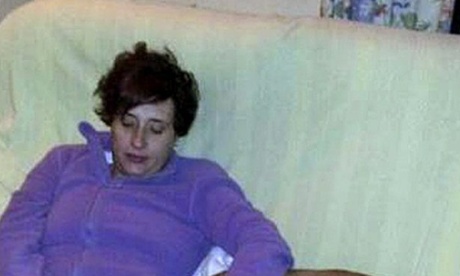
A Spanish nurse who was admitted to hospital in Madrid with the Ebola virus, after treating a repatriated patient who later died of the illness, had told health authorities at least three times that she had a fever before she was placed in quarantine.
Teresa Romero Ramos is the first person in the current outbreak to have caught the virus outside of west Africa.
Her first contact with health authorities was on 30 September when she complained of a slight fever and fatigue. Romero Ramos called a specialised service dedicated to occupational risk at the Carlos III hospital where she worked and had treated an Ebola patient, said Antonio Alemany from the regional government of Madrid. But as the nurse’s fever had not reached 38.6C, she was advised to visit her local clinic where she was reportedly prescribed paracetamol.
Days later, according to the El País newspaper, Romero Ramos called the hospital again to complain about her fever. No action was taken.
On Monday, she called the Carlos III hospital again, this time saying she felt terrible. Rather than transport her to the hospital that had treated the two missionaries who had been repatriated with Ebola, Romero Ramos was instructed to call emergency services and head to the hospital closest to her home. She was transported to the Alcorcón hospital by paramedics who were not wearing protective gear, El País reported.
On arrival at the hospital, Romero Ramos warned staff that she feared she had contracted Ebola. Despite the warning, she remained in a bed in the emergency room while she waited for her test results. She was separated from other patients only by curtains, hospital staff said on Tuesday.
Fernando Simón, coordinator of the centre of alerts and emergencies at Spain’s health ministry, said it might have been better to have admitted Romero Ramos to hospital when she first made contact. Romero Ramos, 44, and her husband, Javier Limón Romero, remain in quarantine.
Spanish authorities say they are monitoring another 50 people for symptoms of Ebola. The list includes other members of the team who attended to the missionaries as well as the healthcare professionals who assisted Romero Ramos at the Alcorcón hospital.
On Tuesday evening, five patients were being monitored for Ebola at the Carlos III hospital, after another nurse who assisted the missionaries was admitted. A man who travelled from Nigeria and another nurse from the same team, both of whom initially tested negative for the virus, remain in isolation.
In an interview with El Mundo from her hospital bed, Romero Ramos said she believed she had followed nursing protocols while caring for the infected patient. She said she “didn’t have the slightest clue” as to how she had contracted the virus and rejected any insinuation of human error. She said she was feeling “a little better”.
In the Alcorcón neighbourhood where Romero Ramos and her husband live, approximately 30 residents have called the city council’s helpline for more information. Beset with worries over having shared lifts and other public spaces with the couple, neighbours complained to Spanish media that they had yet to receive any guidance from health authorities.
On Wednesday morning, the prime minister, Mariano Rajoy, called for calm as he promised “total transparency in giving all the information that could be given” on the outbreak.
He described the Spanish healthcare system as “one of the best in the world” and asked that “health professionals, who have a proven reputation, be left to do their work.”
Along with explaining “how the contagion occurred”, Rajoy said the priority was “to attend to the patient and monitor all of those who have had contact”. “We will overcome this,” he said.
